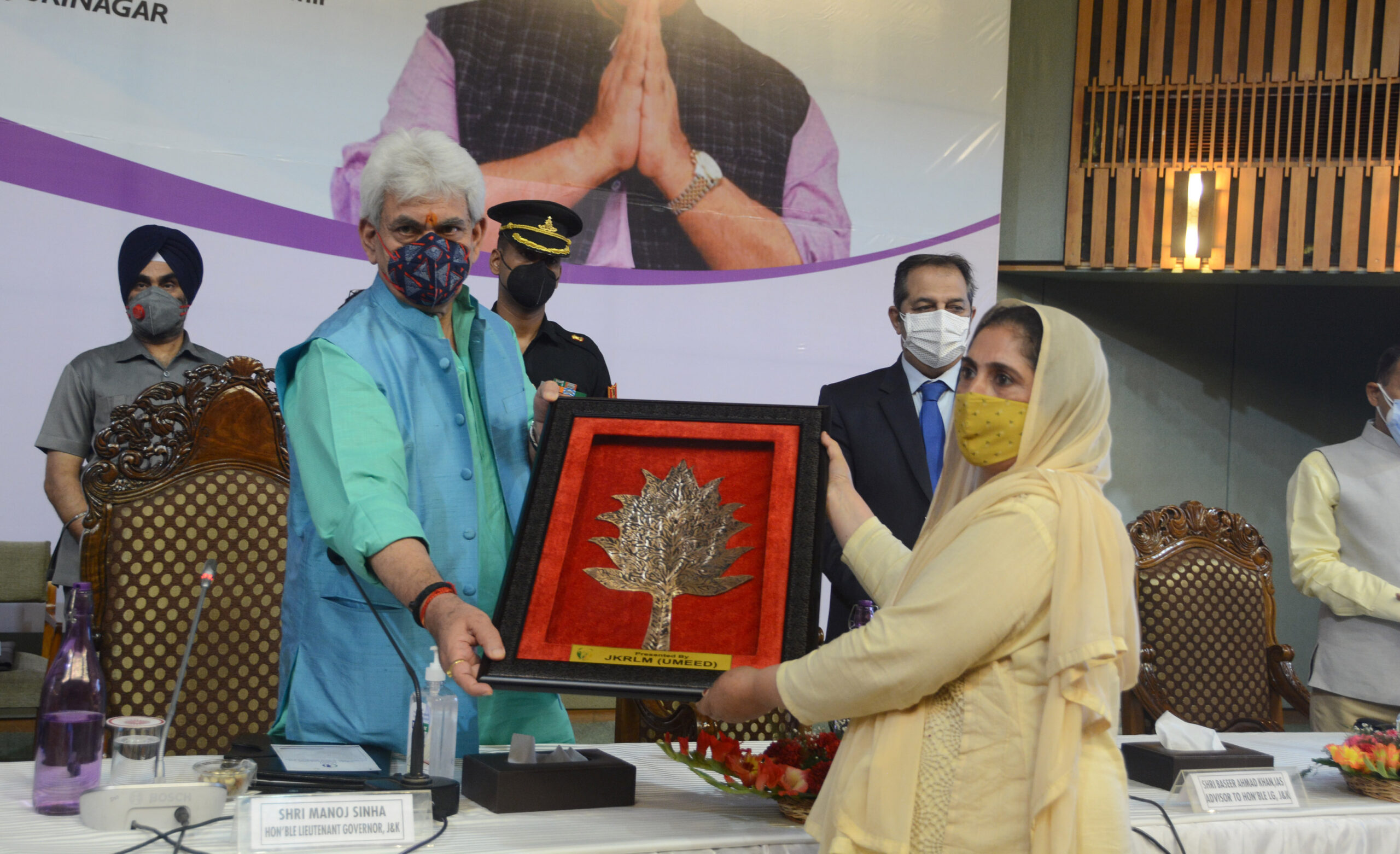Srinagar, Sep 1: Eight years ago, Hameeda was stuck in a deep abyss of ignorance. Hailing from a remote village in the Ganderbal district, the 30 something woman barely knew the word bank let alone what a bank account is and how it functions.
Today, the same woman is a successful entrepreneur owning a dairy farm. She has become a beacon of hope for other women in her village. “It was 2013, when my tryst with the Umeed scheme, under the Jammu Kashmir State Rural Livelihood Mission (JKSRLM), a centrally-funded flagship project to empower women, began. Until then, I had lived a dark age and was confined to the four walls of my home,” she said.
As she started to avail the benefits under the scheme, she began to realize her potential and carved a niche for herself in the community.
“It changed my life for the better. I started with saving 25 rupees. I learnt how to withdraw and deposit money. Umeed was my first school. It gave me an identity. Subsequently, my savings grew manifold and I was able to purchase a three-wheeler for my laborer brother,”
Hameeda said her milk product was so good that the food safety officer was thoroughly impressed after seeing the test results. “I started making curd in earthen pots by attending a training session. Today, my product has many buyers as it is chemical-free and delectable to the taste buds,” she said.
She said that an illiterate woman like her is now considered the main decision-maker of her family. “I became Hameeda ji from Hameeda. With schemes like this, the day won’t be far when women will be able to alleviate poverty rampant in our society,” she said in a confident tone.

Similarly, 31-year-old Haseena from Sumbal in District Bandipora never felt that she will ever see `ache din’.
“I dropped out of school after my mother passed away. The whole responsibility of the family fell on me as my father also got sick. However, life abruptly took a beautiful turn when I became familiar with the Umeed scheme in 2014,” she said.
She maintained that the programme honed her hidden potential and took her out from the drudgery of routine life.
“We got small loans under it. With the help of that, I started my poultry farm. Today, my monthly income is around Rs 5000. As a result, I got my younger siblings educated and married as well. The scheme came as a game-changer and ray of hope for marginalized people like me,” said Haseena, who provides employment to 20 women in her paper machie center.
This is just the tip of the iceberg. On Wednesday, Lieutenant Governor Manoj Sinha unveiled SAATH to promote women entrepreneurship in rural areas. Designed by Jammu & Kashmir Rural Livelihood Mission, SAATH aims at triggering and upscaling women-driven endeavours in business, industry, and agriculture. Under the programme, the government aims to help over four lakh women.
“It is an attempt to enlighten the women in every aspect and give them a glimmer of hope,” said Lt Governor Sinha.

Quoting a recent report from the world economic forum, he said that women are an invisible workforce and this is what they have to understand. “Women are progressing and moving forward in J&K. From literature to information technology, women are outshining boys. This platform will be a major contributor to the socio-economic upliftment of women. If you want to be an inventor or innovator, then this is the time to avail of the scheme,” he said.

According to official data, more than 28,000 self-help groups are operating in J&K. This programme aims to come up with an additional 11,000 groups.
Mission Director, J&K Rural Livelihood Mission (RLM), Dr Sehrish Asghar said they intend to start with a batch of 5000 women who will be given various workshops under SAATH.
“From these 5000 women, we will select 500 women for intensive training. We will create success stories and role models to reach our four lakh plus self-help members,” she said.
The workshops will focus on innovation, value creation, identifying the market patterns and how to package the brand, how to connect with the customers, and how to give employment to other self-help groups.
“This will be sector-specific batches. There will be ten different sectors— animal husbandry, sheep, farming, bakery, handicrafts, and handlooms etc,” she maintained.
Discover more from The Kashmir Monitor
Subscribe to get the latest posts to your email.




